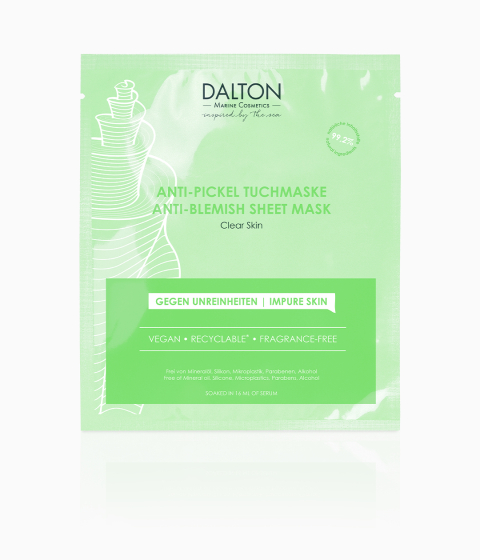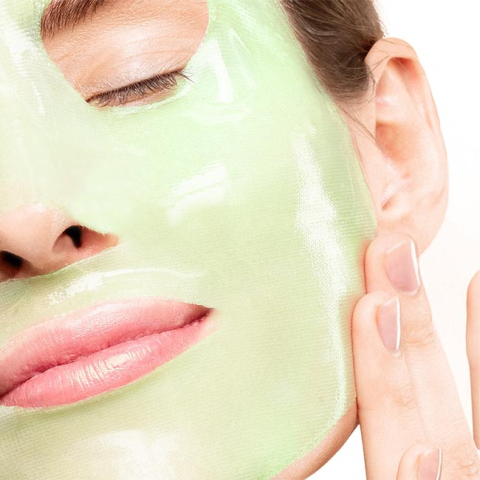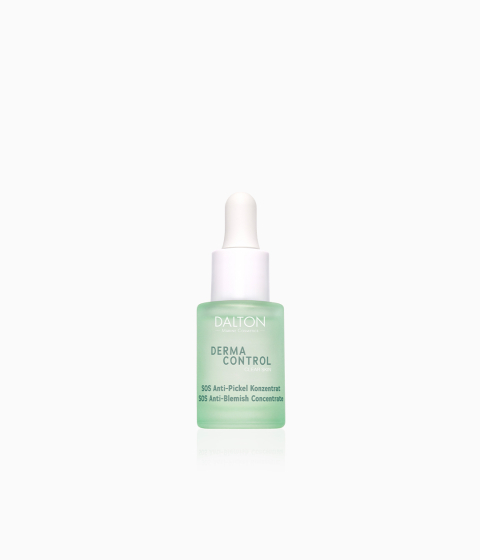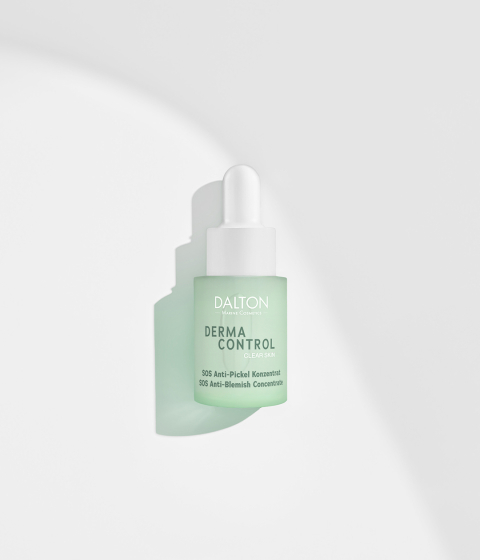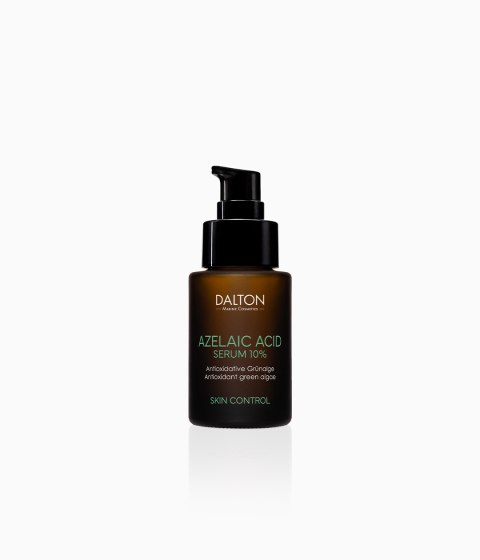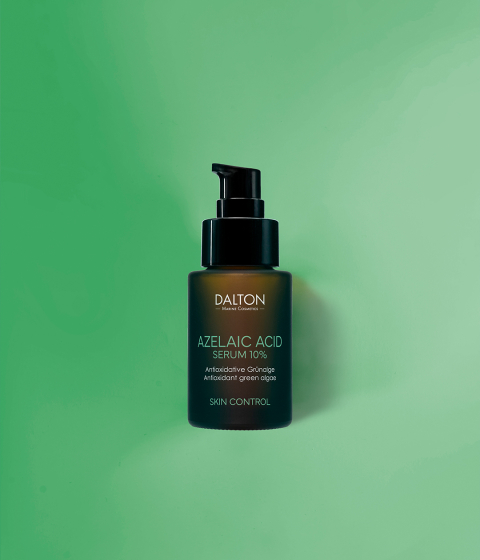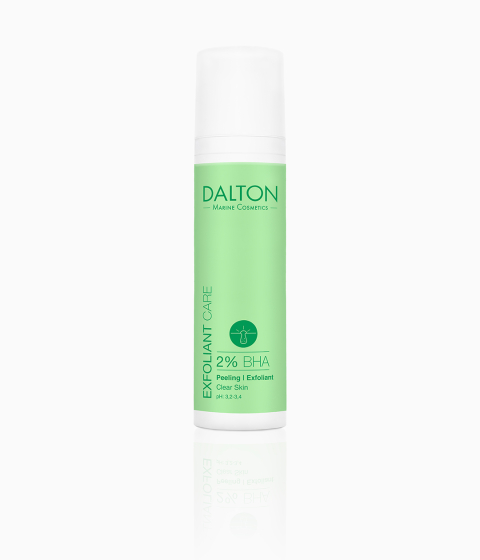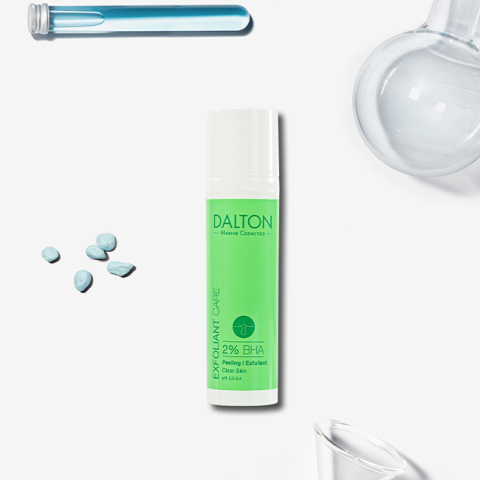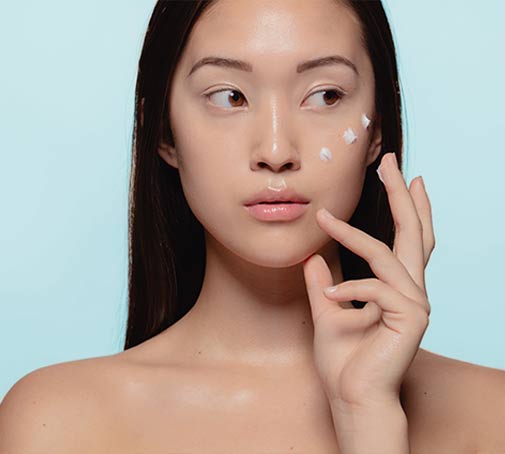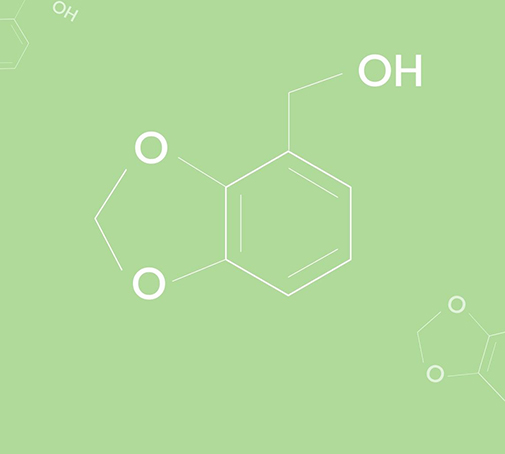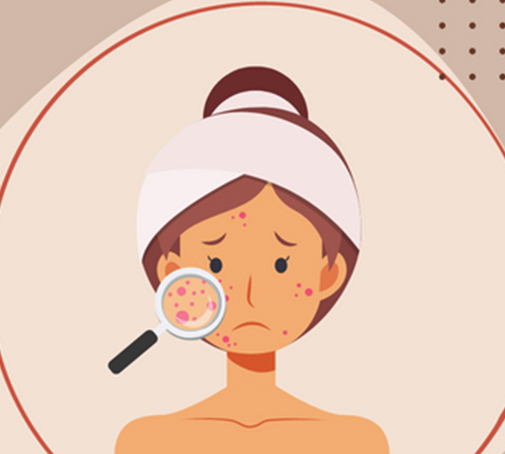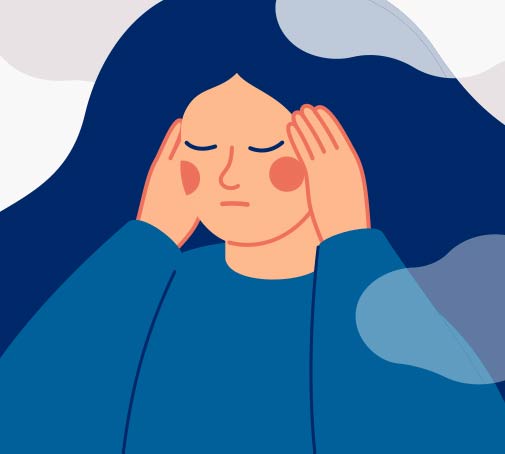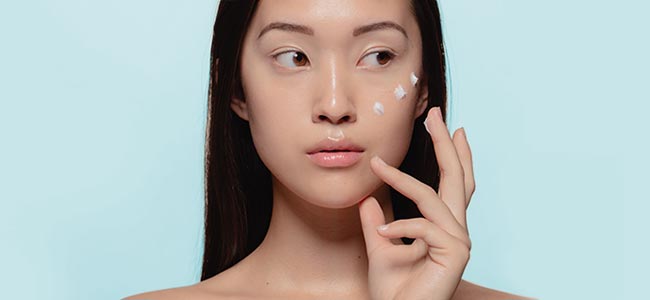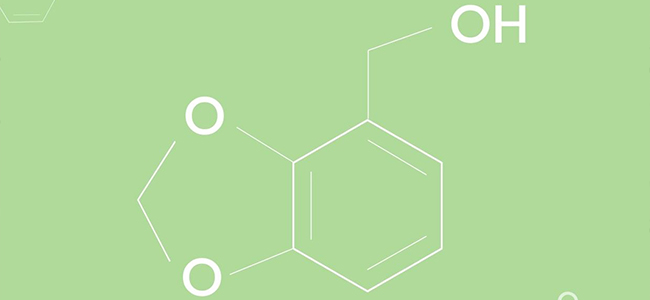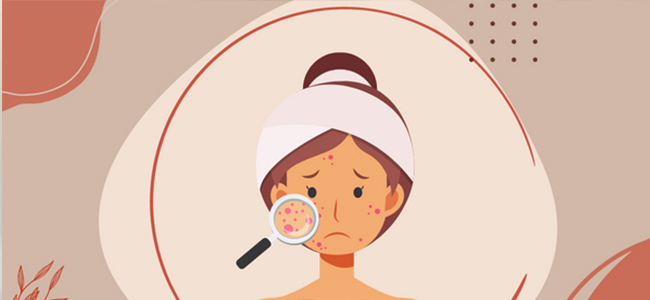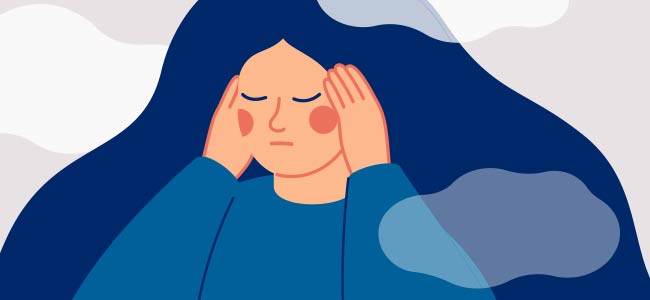
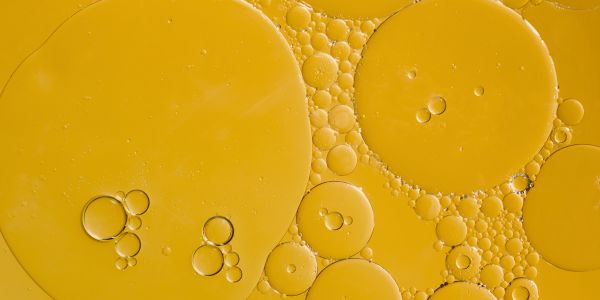
Does tea tree oil really help against acne?
There are a number of anti-acne home remedies that have made their way into bathroom cabinets over the years. Tea tree oil is one of them. But is it really good for the skin and does it actually help to get rid of pimples and blackheads?
Tea tree oil (Melaleuca alternifolia) is extracted from the leaves of the Australian tea tree and considered one of the most effective and popular essential oils on the planet. Australian aborigines have known and used it for generations. Australian tea tree oil was a popular home remedy for treating open wounds, skin infections, colds and gum diseases. In Europe, tea tree oil was the most important antiseptic in medicine until penicillin was discovered.
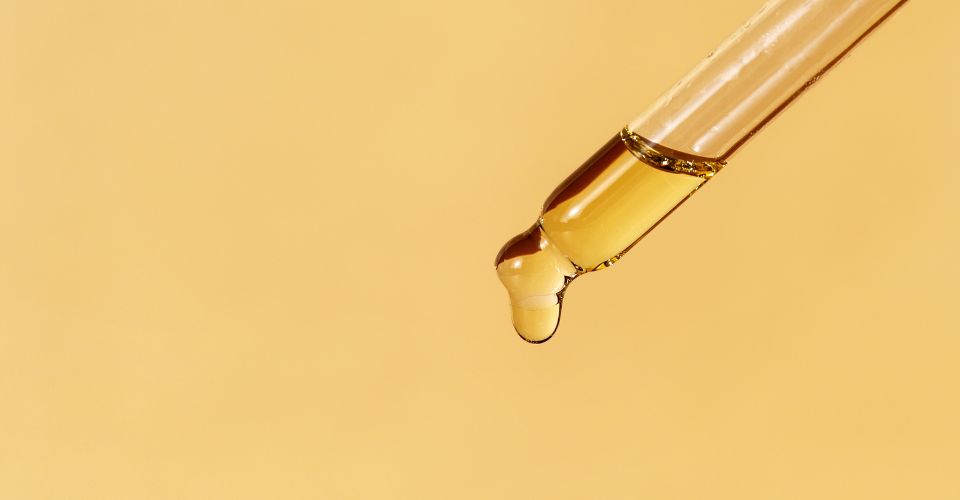



What are the benefits of tea tree oil in skincare?
- Antibacterial
- Anti-inflammatory
- Promotes healing
You will often find tea tree oil in products for blemish-prone skin, pimples and acne treatment. It is used in hair and beard care due to its soothing and wound-healing properties. It is also known as a remedy for warts and athlete’s foot, which makes it a popular ingredient in foot products.
What are the benefits of tea tree oil in skincare?
- Antibacterial
- Anti-inflammatory
- Promotes healing
You will often find tea tree oil in products for blemish-prone skin, pimples and acne treatment. It is used in hair and beard care due to its soothing and wound-healing properties. It is also known as a remedy for warts and athlete’s foot, which makes it a popular ingredient in foot products.
Concentration of tea tree oil in products
Tea tree oil is an essential oil which should only be applied to the skin in diluted form. Applying undiluted tea tree oil can lead to side effects like skin irritation or even allergic reactions.
It’s all in the mix
Yes, tea tree oil has a lot to offer and can rightly bear the title of beauty allrounder, which makes it a popular ingredient in the cosmetic industry. However, it is still important to find the right combination of ingredients to target blemish-prone skin. We recommend using products that contain tea tree oil rather than applying the pure oil. This will help you get the most out of your skincare routine.
FAQ
You ask, we answer.
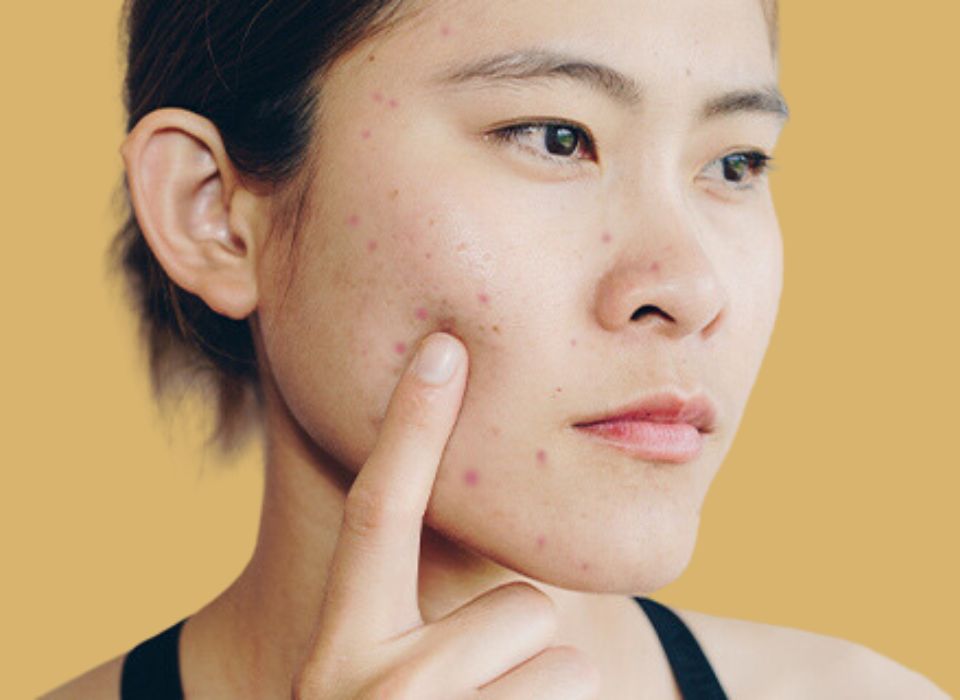



Can I combine tea tree oil with other skincare products?
Answer: Yes, of course you can combine tea tree oil with other products. You need a holistic approach, tailored to your skin, to see real, long-lasting results. We generally recommend using products that contain tea tree oil, instead of adding a few drops to other beauty products or applying the pure oil directly to your skin. Special tea tree products, such as our Anti-Blemish Sheet Mask or tea tree oil gels, contain a combo of active ingredients specially developed for blemish-prone skin.
Can I put pure tea tree oil on a pimple?
Answer: It is a fact that tea tree oil has many benefits for the skin. Whether it actually helps or harms your skin, depends on how you use it. We do not recommend applying drops of pure tea tree oil on a pimple or larger areas of your skin. It is an essential oil that can irritate the skin if used undiluted and in excessive quantities. We advise caution, especially for people with sensitive skin or chronic skin disorders like acne. Possible side effects of treatments with pure tea tree oil include: Redness, irritation, very dry skin or allergic reactions such as itching. There are much gentler, yet effective alternatives.
How often should I use tea tree oil to treat pimples?
Answer: Again, we recommend using products that contain tea tree oil rather than applying the pure oil. To get rid of blackheads, blemishes or pimples, you must follow the instructions provided with each skincare product. This can range from twice a day to once a week.
Tip: If you are looking for a product that can be applied directly on a pimple or affected areas, we recommend the SOS Anti-Blemish Concentrate. It has a soothing and anti-inflammatory effect. It also reduces redness caused by pimples.
Can pure tea tree oil cause irritation?
Answer: Yes, it certainly can. Especially when used frequently, the essential oil can irritate your skin, dry it out or cause allergic reactions such as itching or redness.
Can you use tea tree oil for acne scars?
Answer: Tea tree oil is known for fighting off acne-causing bacteria. Its effectiveness for acne scars has not been confirmed. There are different treatments for acne scars, but prevention is key. If you suffer from acne or other blemishes, consult a dermatologist or professional to avoid acne scarring.
Can tea tree oil be used for skin problems other than acne?
Answer: The ingredient is primarily known for its benefits for blemish-prone skin. However, you can also find it in many foot care products, since it can be used to treat sweaty feet and athlete’s foot.
Can I combine tea tree oil with other skincare products?
Answer: Yes, of course you can combine tea tree oil with other products. You need a holistic approach, tailored to your skin, to see real, long-lasting results. We generally recommend using products that contain tea tree oil, instead of adding a few drops to other beauty products or applying the pure oil directly to your skin. Special tea tree products, such as our Anti-Blemish Sheet Mask or tea tree oil gels, contain a combo of active ingredients specially developed for blemish-prone skin.
Can I put pure tea tree oil on a pimple?
Answer: It is a fact that tea tree oil has many benefits for the skin. Whether it actually helps or harms your skin, depends on how you use it. We do not recommend applying drops of pure tea tree oil on a pimple or larger areas of your skin. It is an essential oil that can irritate the skin if used undiluted and in excessive quantities. We advise caution, especially for people with sensitive skin or chronic skin disorders like acne. Possible side effects of treatments with pure tea tree oil include: Redness, irritation, very dry skin or allergic reactions such as itching. There are much gentler, yet effective alternatives.
How often should I use tea tree oil to treat pimples?
Answer: Again, we recommend using products that contain tea tree oil rather than applying the pure oil. To get rid of blackheads, blemishes or pimples, you must follow the instructions provided with each skincare product. This can range from twice a day to once a week.
Tip: If you are looking for a product that can be applied directly on a pimple or affected areas, we recommend the SOS Anti-Blemish Concentrate. It has a soothing and anti-inflammatory effect. It also reduces redness caused by pimples.
Can pure tea tree oil cause irritation?
Answer: Yes, it certainly can. Especially when used frequently, the essential oil can irritate your skin, dry it out or cause allergic reactions such as itching or redness.
Can you use tea tree oil for acne scars?
Answer: Tea tree oil is known for fighting off acne-causing bacteria. Its effectiveness for acne scars has not been confirmed. There are different treatments for acne scars, but prevention is key. If you suffer from acne or other blemishes, consult a dermatologist or professional to avoid acne scarring.
Can tea tree oil be used for skin problems other than acne?
Answer: The ingredient is primarily known for its benefits for blemish-prone skin. However, you can also find it in many foot care products, since it can be used to treat sweaty feet and athlete’s foot.
Our favorite products for blemish-prone skin
1. The mattifying Anti-Blemish Sheet Mask reduces blemishes and soothes redness. How? With an effective combo of marine peptides, cucumber extract and tea tree oil.
2. The SOS Anti-Blemish Concentrate is an effective remedy for pimples and blemishes with an anti-inflammatory effect. Marine peptides have antibacterial properties and panthenol soothes the skin. It also reduces redness caused by pimples.
3. Azelaic acid is an ingredient you should know about if you have blemish-prone skin. Our 10% Azelaic Acid Serum has anti-inflammatory properties, regulates sebum production and unclogs pores.
4. Let’s not forget about salicylic acid (BHA). Our BHA Exfoliant penetrates deep into the skin, clears clogged pores and reduces pimples and blackheads. It also helps to treat keratinization disorders and improves skin texture. By the way, you can also use this product to help reduce pimples on your back (bacne).
Recognize the causes
There is not just one product or one way to improve your skin in the long term. As always, it is a combination of several factors. One important aspect is to recognize and understand the causes of your blemishes.
- They rear their ugly heads every month: A flare-up of blemishes related to your menstrual cycle is quite common! As soon as they have disappeared and your skin regains its natural glow, they are already plotting their next appearance.
- Hormonal acne can have many triggers. Pregnancy, puberty, menopause, stopping the birth control pill, stress or diet.
- Acne tarda (late-onset acne) proves that acne is not just a problem during puberty.
- What if you just can’t keep your hands off your skin? Skin Picking can not only make pimples worse, it can also cause them.


SIMILAR POSTS
You Might Also Like

